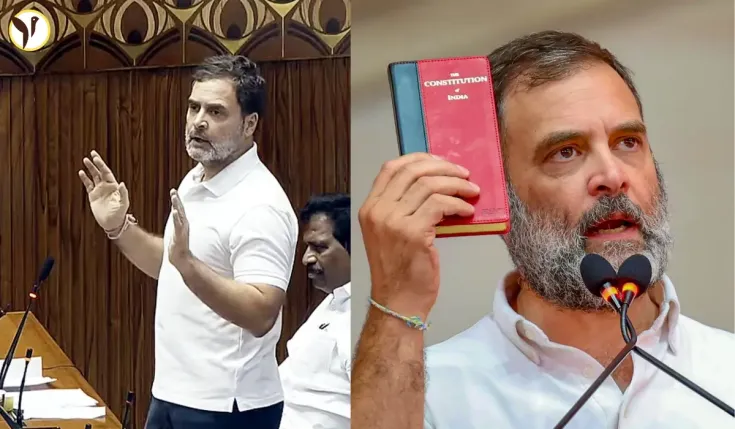Rahul Gandhi, a well-known opposition figure, ignited a violent debate at a recent parliamentary session with his passionate comments addressing politics, religion, and social issues. Gandhi held up pictures of Jesus Christ, Guru Nanak, Lord Shiva, and other religious figures to highlight the idea of fearlessness that is shared by followers of Buddhism, Sikhism, Islam, Christianity, and Jainism. He quoted these holy men's teachings, encouraging people to live brave lives and to keep others from being afraid.
हिंदुस्तान डर का देश नहीं है।
— Rahul Gandhi (@RahulGandhi) July 1, 2024
हमारे सभी महापुरुषों ने अहिंसा की बात की, डर मिटाने की बात की।
नरेंद्र मोदी, भाजपा और RSS पूरा हिंदू समाज नहीं हैं- जो हिंसा और नफ़रत फैलाता है, वो हिंदू हो ही नहीं सकता। pic.twitter.com/v2BaEcQRTS
Gandhi's words, however, were quickly met with considerable opposition from ruling party members, and as a result, the Chair removed them from the official record. He made controversial statements regarding the NEET exam, favoring wealthy kids over good ones, criticizing billionaires like Adani and Ambani, and accusing the BJP of mistreating minorities. In addition, he cast doubt on the Agniveer Scheme, claiming that the Prime Minister's Office rather than the military was in charge of it.
Gandhi's address lasted for an hour and forty minutes, during which time at least five cabinet ministers interrupted him, including Prime Minister Modi. The intense nature of the discussion and the intensely divisive character of Indian politics were highlighted when Home Minister Amit Shah went so far as to demand that Gandhi retract his words.
Rahul Gandhi calls all Hindu violent..... Imagine anybody using similar term for Muslims.
— Mr Sinha (@MrSinha_) July 1, 2024
Bloody secularism..... I pity those Hindus who vote for them pic.twitter.com/mtMFXcLsZT
Gandhi's address, which reflected larger discussions on religious tolerance, economic equality, and open governance, highlighted the persistent conflicts and ideological splits inside Parliament. While his comments sparked criticism and rebuttals from political opponents who saw his accusations as provocative and unfounded, they also struck a chord with fans who saw him as a champion of social justice.
Talks like Gandhi's are important markers of democratic debate and the quest of inclusive governance as India navigates difficult problems and aims for unity amid diversity. The consequences of his comments reflect the fine line that separates free expression from parliamentary decorum and the continuous battle for agreement and collaboration in the country's highest legislature.







